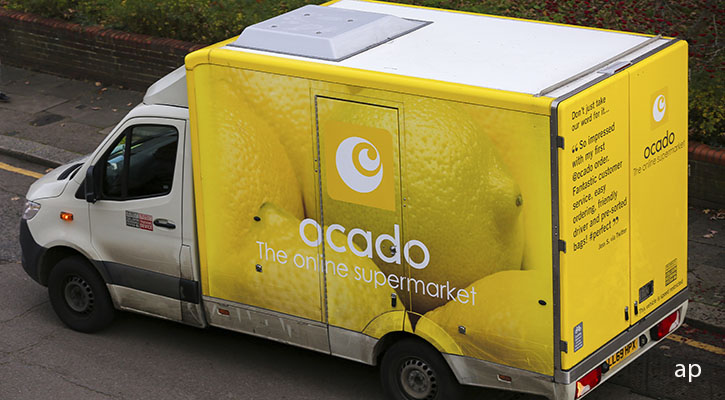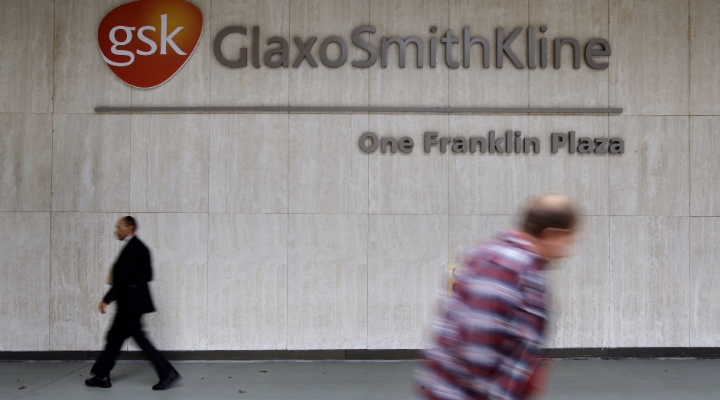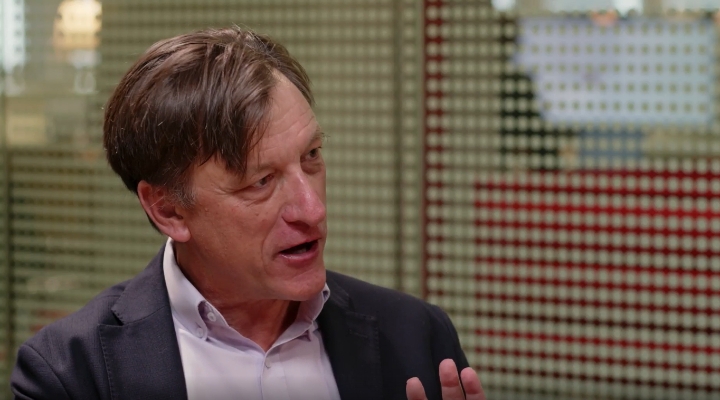
Online supermarket Ocado (OCDO) has suffered a humiliating demotion from the UK's blue-chip index. But Morningstar analysts say the company is significantly undervalued.
Key Morningstar Metrics for Ocado
• Fair Value Estimate: £9.20;
• Morningstar Rating: ★★★★★;
• Morningstar Economic Moat Rating: N/A;
• Morningstar Uncertainty Rating: Very High.
Its exit from the UK's largest index will be uncomfortable for fund managers who championed the stock in its heyday. But it also directly impacts passive funds tracking the FTSE 100, which will have to sell out of Ocado.
Why Has Ocado Been Demoted From The FTSE 100?
Once a darling of the UK stock market, Ocado shares have witnessed a protracted fall from grace since February 2021, when the pandemic was causing huge – and initially beneficial – disruption to shopping in the UK.
At a market capitalisation just under £3 billion, it's no longer valuable enough to make the cut. Ocado shares currently trade at £3.53, compared to a £28 peak at the height of the pandemic. So far in 2024, they have fallen 52.18%. The numbers also look negative over longer time periods.
Over three and five years to June 5 2024, shares have fallen 81.2% and 68.2%, respectively.
"This underperformance is due to intense competition in the UK grocery market and a cost-of-living crisis, which traditional brick-and-mortar supermarkets were able to manage more effectively," Morningstar director of equity research Ioannis Pontikis says.
The resulting falls in Ocado's share price mean that its market capitalisation (the value of its shares multiplied by the number of shares on issue for sale and purchase) robs it of its status as one of the UK's 100 biggest companies.
Ocado has been slow to make good on proposed business deals. The biggest of its tie-ups – with premium clothes retailer and food distributor Marks & Spencer (MKS) – appears to be benefiting the latter more than the former. Over the last 12 months, shares in M&S are up over 65% to £31.00.
The pair are also yet to agree on the final payment M&S owes for its 50% stake in Ocado Retail, which it bought in 2019. M&S has argued it should not pay the remaining £190 million it originally owed Ocado because the business has not hit certain performance targets. Ocado chief executive Tim Steiner is now threatening legal action.
Twin headwinds of a cost of living crisis and the return to normal shopping have weighed on Ocado's prospects. After peaking at 14% of all shopping activity in 2021, online ordering has since reverted to its pre-pandemic norms of 11% of market.
Fair Value Estimate for Ocado Stock
Assigning it a 5-Star Rating, Pontikis says Ocado is significantly undervalued and represents a buying opportunity for those willing to keep the faith in the power of technology, and specifically its proprietary product: Ocado Smart Platform, a white-label technology business that offers AI and robotics central to other firms' logistics models.
"Our constructive view on the stock is supported by our thesis that the Ocado Smart Platform is a leading provider of online grocery fulfilment solutions for large brick-and-mortar grocers, especially as online penetration grows in developed markets," he says.
He also views Ocado's experience in the underlying economics of customer fulfilment centers as a major tailwind for profitability. Global opportunities and further tie-ups also validate a generous Fair Value Estimate of £9.20, he adds.
"Our valuation reflects online penetration rising to 25% by 2040 in developed economies with Ocado's solutions capturing a high single-digit market share in these digital grocery markets through Ocado's partners."
Economic Moat
But there are also risks. Because of the nature of its business and the extremely competitive groceries market it operates in, Ocado does not earn a Morningstar Economic Moat Rating. What's more, Ocado's "Solutions" business is still at an early stage of development, is capital-intensive, and faces major execution risks.
As additional partners join Ocado's platform, a strengthening of intangible assets, switching costs, and cost benefits may emerge. These may be enough to warrant an upgrade, which would give Ocado a "Narrow" Economic Moat Rating – indicative of it being able to fend off competition for several years. Investments in its proprietary technology platforms could also lead to an increase in customer loyalty, and a network effect once more partnerships materialise.
Risk and Uncertainty
Given this situation, Pontikis assigns Ocado shares an Uncertainty Rating of Very High. For one, Ocado faces intense competition in the UK as grocers battle to earn the loyalty of customers with squeezed budgets. Tesco's "price match" has resulted in significant price reductions over the past few years, and that has hit Ocado disproportionately because it doesn't have the purchasing power its older (and larger) peers do.
Although Ocado's solutions business is the clear driving force and top focus moving ahead, the market for this kind of innovation is currently modest, which means it will take Ocado time to scale. Morningstar analysts also expect stickier inflation to have a greater impact on the business, given its exposure to shrinking baskets and added delivery costs per order.
These risks are not domestic either. The firm also risks failing to successfully commercialise its solutions technology overseas due to service disruptions, quality issues, or slow online adoption growth. While the likelihood is low, the effect would be "catastrophic", Pontikis says.
Ocado Bulls Say
• Ocado's Smart Platform is one of the most efficient and reliable end-to-end online fulfilment solutions for the grocery market today;
• Ocado's global opportunity is significant, and is driven by the further potential of online penetration in the grocery market;
• OSP is the result of Ocado's relentless focus on solving the online grocery riddle through cutting-edge proprietary technology that is hard to replicate.
Ocado Bears Say
• There is considerable execution risk involved in rolling out committed customer fulfilment centres (CFCs) for partners/grocers over the next few years.
• Ocado's solution is significantly more capital-intensive than alternatives (for example microfulfilment) with longer payback timetables.
• There are considerable financing challenges ahead for Ocado as it rolls out its partners' CFC network. That exposes it to external factors, including interest rates and the price of debt.




























